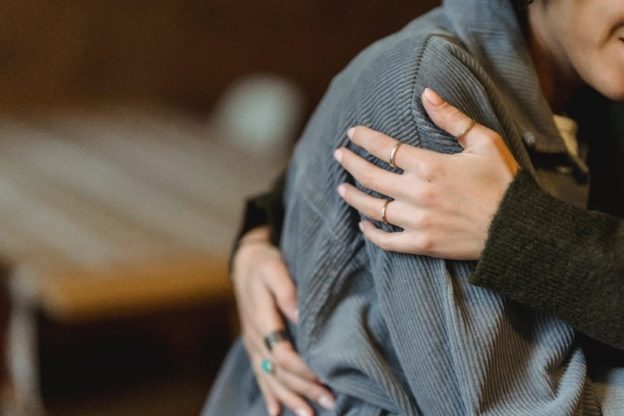
We all know that grief is a natural and common response to the loss of someone or something, but did you know that there are several different types of grief?
It is important to acknowledge that not everyone experiences or expresses grief in the same way, and it is okay if your grieving process is different from those around you.
You can grieve the loss of a person who has passed or is no longer around, the loss of physical or cognitive functions, or the loss of something such as a job or a change to your routine.
So, what are the different types of grief? Read on to find out.
Normal grief
Normal grief refers to the type of grief that people commonly experience after a loss. The term normal grief can be misleading, as there is no such thing as “normal” and this can be experienced in many different ways and involve a range of feelings.
This is the type of grief that people would typically expect and people that are experiencing normal grief usually can continue to carry out their daily activities and have accepted the loss or are moving towards acceptance.
Although that may be the case, you may still feel intense emotions or numbness, but they come and go and may not be obvious to others, and will become less intense and frequent over time until you learn a new normal.
Anticipatory grief
Grief can begin long before a loss occurs. When you are anticipating a loss that has not yet happened but you are expecting it, then you may experience anticipatory grief.
This type of grief is common in caregivers for people that are terminally ill, as they grieve the upcoming loss, especially when their condition worsens and their health deteriorates.
You may find it difficult to talk to others about this grief you are feeling, or fear that they may not understand, or you may feel guilty or confused, as the person is still alive. However, that does not make it any easier or mean that your feelings are not valid.
With this type of grief, you not only grieve the person you will lose, but also that which comes with the loss, such as changes to your life and plans and dreams.
Delayed grief
When grief is not experienced immediately following a loss and is postponed until a later time, this is known as delayed grief.
Your grief may be suppressed or lay dormant until another event causes it to surface. It may seem that you are having an excessive reaction to what is currently happening, and you or others around you may not realise this is delayed grief for a prior loss.
Chronic grief
When someone suffers from intense and prolonged feelings of hopelessness or disbelief, or are isolating themselves, they are likely to be experiencing chronic grief.
These feelings can last for a long period of time without subsiding, and often have an impact on their ability to carry out everyday tasks.
People with chronic grief can have intrusive thoughts which can lead to severe depression, suicidal thoughts or ideation, self-harm, or substance abuse.
Cumulative grief
Someone that experiences several losses in a short period of time is likely to have cumulative grief. This can be particularly stressful as they may not have adequate time to properly grieve one loss before they experience another.
Cumulative grief is also known as bereavement or grief overload. Anyone experiencing this type of grief may feel lost or unable to cope as the grief builds up. This type of grief also often leads to depression.
This guide is not exhaustive – there are many more different types of grief. These are just some of the more common types to help give you an understanding that grief is complex, and there is no one way to grieve or process a loss.
Although no two people are the same, and no two losses are the same, thus no two people grieve in the exact same way, it is important to remember that you are not alone.
Whatever type of grief you may be experiencing, you must seek support from a loved one, a trained volunteer, or a professional if you are struggling to cope with a loss.
